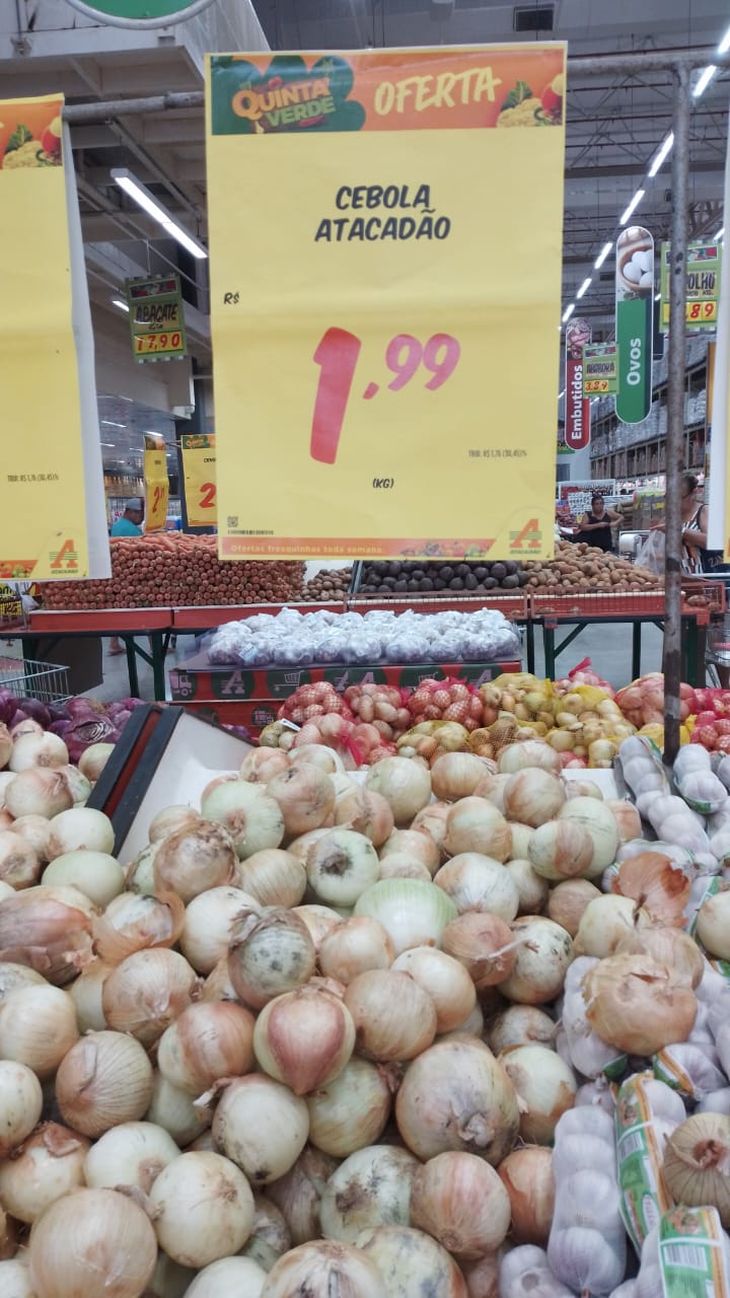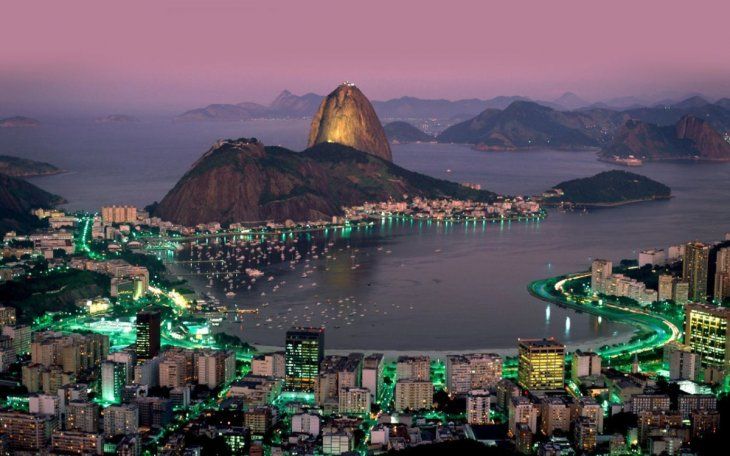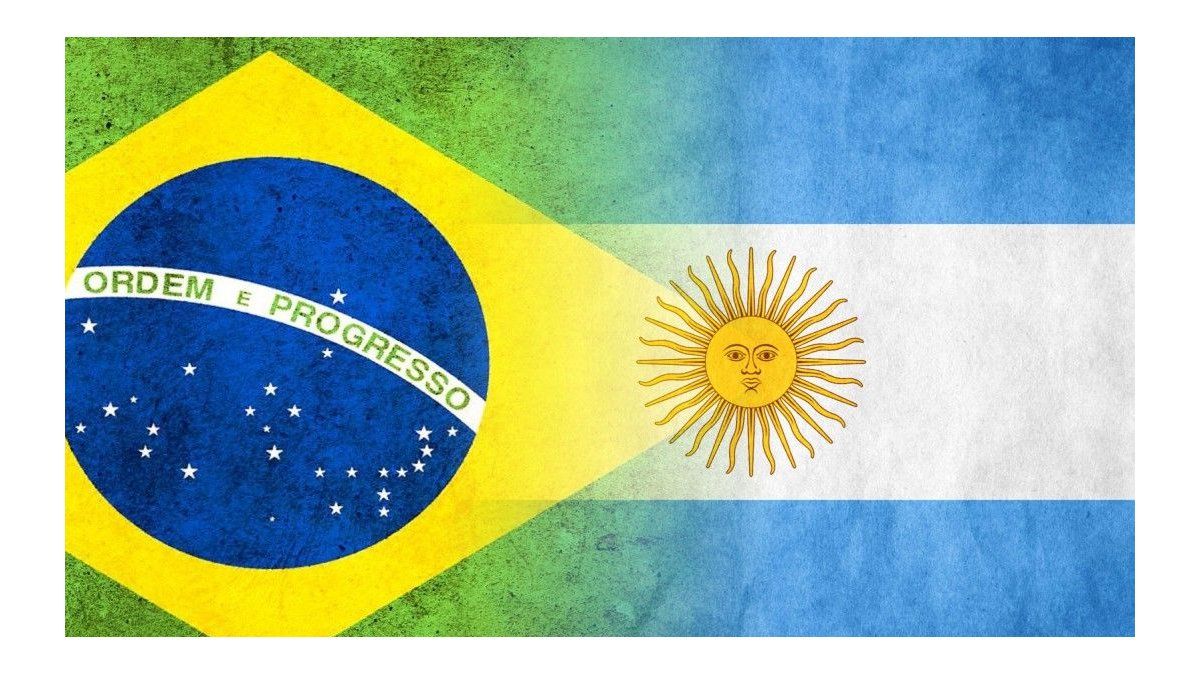The devaluation of the real regarding the dollar accumulated during in 2024 27.35%. However, currency depreciation gave Brazil the push to enhance the competitiveness of its economy, today in the “top ten” in the world. Despite this, the negative effects of this dynamic seem to generate a milder impact on the cost of living and prices, when compared to the same situation in Argentina.
At first glance, the devaluation jump of the Brazilian currency does not generate sudden changes in the prices of mass consumption products (especially food and beverages) and services.
That is why it is necessary to analyze this dynamic of the Brazilian economy to understand why despite the exchange rate jumps, the impact on the cost of living is much more attenuated compared to what happens in Argentina.
The devaluation of Brazil
To understand what we are talking about when we refer to Brazil’s economy and understand its dynamics, Scope spoke with the economist Federico Vaccarezzawho explained in depth what is happening in the neighboring country and how this affects Argentina.
“Brazil has an economy whose annual GDP value is equivalent to 5.8 times that of Argentinagrows steadily at 3.2% annually, an annual industrial GDP of US$480,000 milliona foreign trade that is equivalent to six times Argentine foreign trade and is, by far, the main recipient of foreign direct investors (FDI) in all of Latin America,” explained the economist.
Brazil dollars.jpg
The devaluation did not generate a strong impact on product prices in Brazil.
The data provided by Vaccarezza demonstrate the Brazilian economic strength. “The international reserves of the Central Bank of Brazil in 2024 are equivalent to $350 billionnails 12 times the value of the BCRA’s declared reserves. It is therefore the 8th world economy by GDP size. All these reasons position Brazil as a reliable and stable economy, based on a stable developmentalist and industrialist economic policy for more than 30 years,” he stated.
So why does it devalue Brazil? “The reasons are external and internal. The dollar is strengthening, the North American interest rate is rising and this is a magnet for capital in emerging countries. Brazil does not want to lose competitiveness in its exports and a more competitive currency is in orderfacing a possible increase in international commercial competition. “This has been their policy for the last three decades,” Vaccarezza explained.
In this way, the economist remarked, “The devaluation in Brazil has a much lower impact on prices, because it depends less on industrial imports than Argentina”. This is the dynamics of its economy, which “has remained competitive internationally, promoting its industry, increasing external reserves and balancing the exchange rate again,” he summarized. Vaccarezza.
Prices of the ordinary economy in Brazil
Along these lines, it is necessary to know the day-to-day experience of the ordinary economy in Brazil, to know what happens when there is devaluation. It is a country with an extensive territory in which two socioeconomic realities coexist, in the north and in the south.
Sergio Daltro He is a merchant from the city of Nativity scenein the northern state of Pará, where COP 30 this year. In dialogue with Scoperecounted his experience in recent months following the devaluation of the real.
onion price supermarket brazil.jpeg

Food, at a low price measured in dollars in Brazil.
Scope
“We had price variations but they were few, there was not much increase in prices”he responded Daltro about the increase in the cost of living in the last six months. A survey carried out by this means showed that Brazil prices (food, drinks and hygiene products) are almost 50% cheaper measured in dollarsregarding Argentina.
In its business, a classic neighborhood store, it offers food, drinks and basic cleaning and hygiene products. Regarding the increase in prices, Daltro considered that “in the last six months of 2024 there were increases in up to 20% in some products.” Likewise, he clarified that “The impact of the devaluation was very little on sales since it did not affect the normal movement of commerce”.
Tourism in Brazil, the star of summer 2025
If we look at the tourism and gastronomytwo key axes for Brazil’s economy, we see a similar panorama. For them, Scope consulted Juan Echayrean Argentinian who has been dedicated to the gastronomic field for more than 15 years and settled in the neighboring country in 2021. There he started his first project in Big Islanda paradisiacal destination located off the coast of Rio de Janeiro.
Echayre He also recounted his experience, both from the ordinary economy and from the commercial side. “There were no changes in prices, If there were any, it was 10-15 cents of real. The prices of products such as water, meat, flour, and chicken have been maintained on the shelves for a long time,” he said.
brazil -.jpg

Rio de Janeiro, one of the preferred destinations for Argentines for summer 2025.
tourismbr
Owner of a bar, a grill and a hostel on the island, Echayre He contributed: “On the grill we only increased some products. I marked up my prices by 5 reais after a year, which is less than 5% on the values on the menu. Importing meat from Argentina became more expensive because access to the dollar became more expensiveand that had an impact of approximately 4% on the letter,” he explained.
When asked about How did the devaluation of the real impact your sector?the Argentine businessman explained that “although tourism is clearly recovering after the pandemic, there was very strong growth in foreign tourism in June 2024, thus taking advantage of vacation prices and the climate in Brazil.” At the same time, he assured that for these vacations, “there are a high number of reservations made from Argentina,” which confirms that the summer season in Brazil will have a large presence of tourists from our country, favored by the exchange rate.
These are some reference prices that can be found on Ilha Grande:
Gastronomy
- Options such as chorizo steak, strip roast, entraña, picaña for a value between 90 and 105 reais (between 14 and 17 dollars, at the exchange rate of the Central Bank of Brazil).
- French fries, 500g portion. At 55 reais (US$9).
- Full burger 50 reais (US$8).
Drinks
- A classic pint of beer costs 18 reais (between $2.90 and $3).
- A caipirinha costs 25 reais (US$4).
Lodging
- An Airbnb for up to four people (with air, TV, full kitchen, downtown 10 meters from the sea in Ilha Grande) costs about 400 reais per night (US$65).
- The hostel offer has an average price of 150 reais per night (US$24).
- A posada (double room) costs around 500 reais per day (US$82).
Source: Ambito




